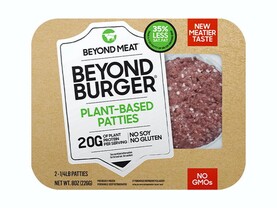RETAIL
Marketing ploys of retailers
M Byrne, Green Road, Abbeyleix, Co Laois
DEAR SIR: Every commodity has a value. There is nothing to cure a high price in a commodity market like a higher price; meaning that if too high a margin is being taken on a product, other producers will provide a more competitive price due to their advantages which may be scale, processing capacity or favourable climate.
However, what is happening with vegetables in our supermarkets has nothing to do with advantages in production, but has everything to do with marketing ploys and the domineering tactics of the multiple retailers.
In Ireland, we have a reputation for producing high quality food at competitive prices and, most importantly, with full transparency. We use good farming practices which maintain our land and watercourses in a state fit enough to be passed onto the next generation.
We have a very strict regime on the use of artificial herbicides and pesticides – we limit the amount of nitrates that are allowed to be used on crops and monitor all of our slaughtering facilities with qualified department veterinary inspectors.
In essence, the products which result from this effective regime are both safe and nutritious and represent value for the consumer. There is full transparency.
What is happening here is a race to the bottom and I think it is important to remind people of the horsemeat scandal, which erupted early this year and, reassuringly, was detected by our department. When this issue was stripped down to its essence, the key point was that the provider of beef burgers had one primary goal: to maintain their contract, i.e. to provide burgers to the masses at 8c per burger – when a prime, nutritious beef burger should cost in the region of 80c to produce. Essentially, you cannot make a silk purse out of a sow’s ear.
Over two years ago, Europe was also consumed with the issue of injecting chicken and other meat products with protein fluids which retained bulk in the meat in order to fool the consumer into believing that they were buying a certain weight of prime meat. However, when that meat hit the frying pan the water was quick to evaporate. There were serious concerns that the byproducts – other than water – were still present.
It is also worth reminding the consumer that our chicken producing industry has been decimated in Ireland with producers only receiving a few cents a bird. Thus leaving them no proper margins to run a sustainable business.
Only this year, Cappoquin Chickens closed down with the loss of hundreds of jobs, both in the farming and processing sectors. We now face the substitution of this chicken from sources, in many cases, where the standards of production would not meet the criteria we expect.
I believe, there should be a fixed percentage of the final price for the primary producer, because without this relationship large players will use their dominant position to bully farmers, and other people involved, in order to appease their shareholders.
This is a huge threat, to both our agricultural and manufacturing economy. There are inevitable consequences to this kind of behaviour, effectively it is giving away food.
Firstly, it devalues peoples’ opinion of food and they regard food as being ever present and ever cheap. Secondly, this leads to periods of cheap pricing followed by scarcity, where the price may not be the issue rather the availability of the food itself may come into question. The people who will suffer most when food goes scarce will be those who can afford it least.
Only two years ago the world went remarkably tight with grain stocks and the price shot up dramatically. If we artificially force down the price of food, primary producers will go out of business and will not be there in times of scarcity to resume production when our people need to be fed. We are in a privileged position in Ireland that we can feed our people and our animals.






 This is a subscriber-only article
This is a subscriber-only article










SHARING OPTIONS: